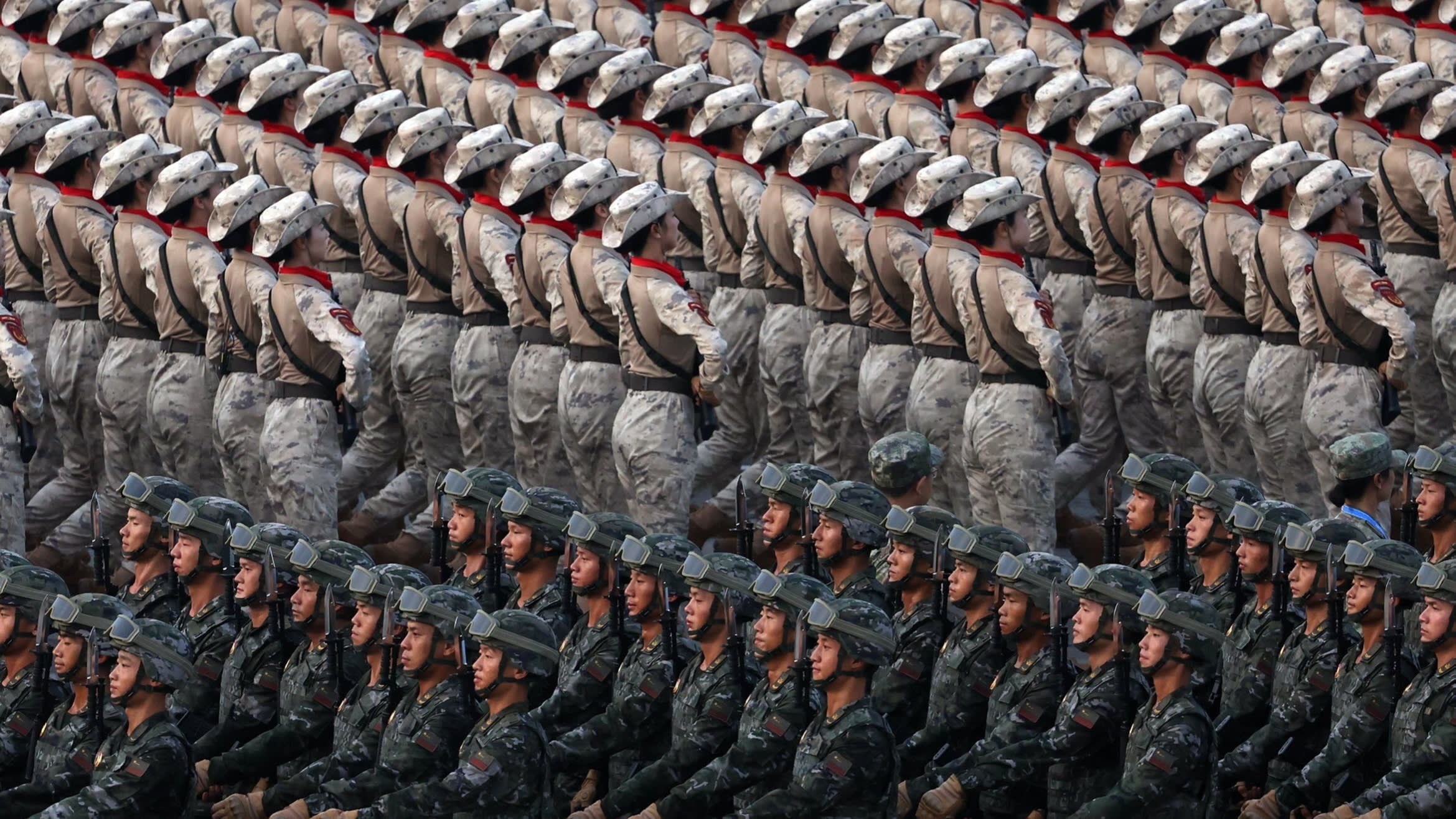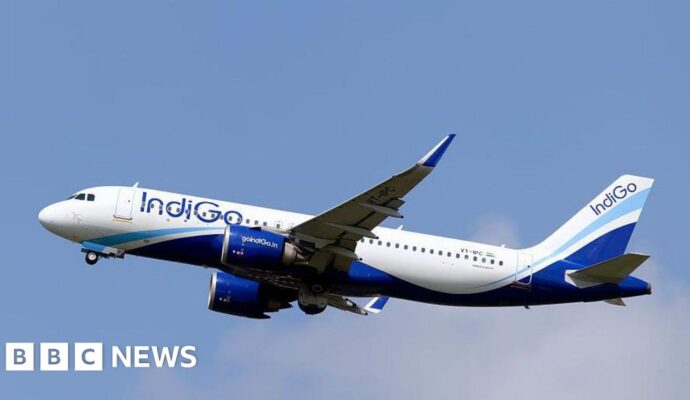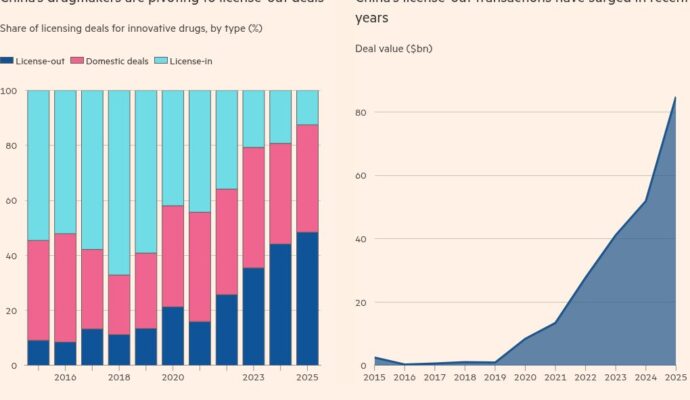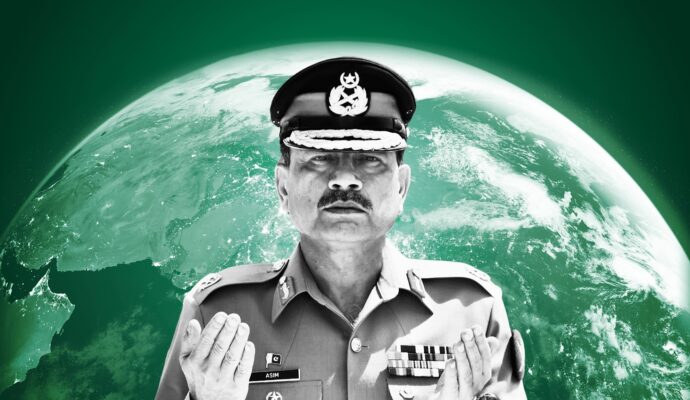
Unlock the Editor’s Digest for free
Roula Khalaf, Editor of the FT, selects her favourite stories in this weekly newsletter.
A few weeks ago, while riding my bicycle to work in Beijing, I noticed small tents springing up on the city’s overpasses and pedestrian bridges, like a kind of camouflage fungal outgrowth.
These tents belonged not to a troop of scouts lost in the concrete jungle of Beijing’s vast system of ring roads, but to China’s paramilitary police.
The appearance of the guards, who keep a 24-hour vigil to prevent the planting of terrorist bombs or the hanging of protest banners, was the first sign presaging President Xi Jinping’s flagship event this year — a military parade held on September 3 to mark the 80th anniversary of China’s second world war victory over Japan.
This grand spectacle, whose guests of honour included his fellow strongman and “old friend” Russian President Vladimir Putin and North Korean dictator Kim Jong Un, followed a regional security meeting in Tianjin, near Beijing, that was also attended by India’s Narendra Modi, Pakistani leader Shehbaz Sharif and Iranian President Masoud Pezeshkian.
With guests such as these in town — all of whom have fought wars this year, sometimes with each other — nothing could be left to chance, especially on the security front.
Even on a normal day, security in Beijing is so tight that it can feel like a different country from the rest of China, with permanent police ID checkpoints at domestic airports, train stations and highways leading into the capital.
Last week, however, the city’s borders became almost impassable.
In central Beijing, offices overlooking the route of the parade were searched and sealed with tape. Tenants were denied entry for two days. Schools were closed for three days and classes moved online.
Nearby steelmakers had to cut production to improve air quality so that Xi’s parade guests on Tiananmen Square could see the air force manoeuvres.
Those who made “defamatory” remarks about the parade on Chinese social media were detained by police, including a man surnamed Meng, who “insulted and mocked” other netizens’ patriotic fervour, the authorities said.
Despite the meticulous organisation, however, not everything went to plan. A hot mic moment captured Xi and Putin discussing whether science would one day allow them to become immortal — every septuagenarian strongman’s dream.
China’s extensive preparations were also accompanied by a wave of nationalistic propaganda, especially new films in cinemas. Some relive the worst atrocities of the war, such as Dead to Rights, set during the 1937 Nanjing Massacre.
Others played up the heroism of ordinary Chinese, such as The Sinking of the Lisbon Maru, a documentary about the rescue of hundreds of British prisoners of war by local fishermen.
Melinda Liu, a Beijing-based journalist whose Chinese father helped to save stranded US airmen from the Doolittle Raid on Tokyo in 1942, said such stories showed the country not just “as a passive victim, but also as a player” in the war.
Xi reinforced this idea when he shook hands at the parade with 94-year-old Luo Jinghui, who served in Hong Kong as a teenage guerrilla with the Communist East River Brigade.
This group fought the Japanese and helped Allied personnel escape enemy territory. The son of one such escaper, Dave Kerr, told me during a visit to Beijing this week how his father, a US fighter pilot, was shot down over Hong Kong in 1944 but was saved by the guerrillas from a Japanese manhunt.
Kerr said he hoped his father’s tale could show how different peoples can work together and overcome difficulties. “Unfortunately, in America right now . . . people forget that we were once great allies,” he said of the US and China.
In China too, such messages risk being lost beneath the nationalistic bombast of the parade and the cold realpolitik of the Tianjin security meeting.
But at least after the parade, the guards on Beijing’s bridges might finally get to go home after weeks working in the summer heat.
As I rode over one bridge later on the day that Kim’s green armoured train rumbled homeward to North Korea, I saw a guard seated on a stool, his face against a steel handrail, fast asleep.


